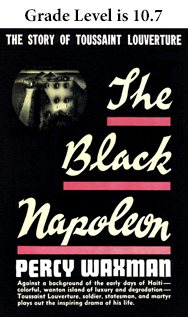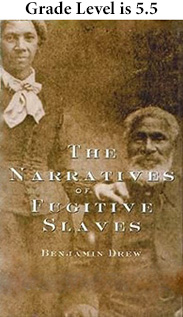Elective 3: Reading and Writing Black History at 6th-8th Grade Reading Level
The epub format below is for your Apple and Android devices including the Send-to-Kindle feature in Amazon.
Download the mobi file for Amazon devices except the Send to Kindle feature here.
Enjoy descriptions and links to nine eBooks written at the 6th to 8th grade level. The titles are:
The Long Black Schooner by Emma Gelders Sterne: The Voyage of the Amistad
Revolts, Resistance and Emancipation by Dorothy Sterling: How Slaves and Society Resisted Slavery
The Narratives of Fugitive Slaves by Benjamin Drew: Fleeing to Safety in Canada
Three Autobiographies by Frederick Douglass: How the Abolitionist Leader Resisted Slavery
The Autobiography of an Ex-Coloured Man by James Weldon Johnson: His Travels in the North and South
Home to Harlem by Claude McKay: Life in Harlem in the 1920s
Fire in the Flint by Walter E. White: A Doctor Returns to the Jim Crow South
W. E. B. Du Bois by Emma Gelders Sterne: A Founder of the N.A.A.C.P
Mary McLeod Bethune by Emma Gelders Sterne: She Defended the Right to Vote and Built a College


